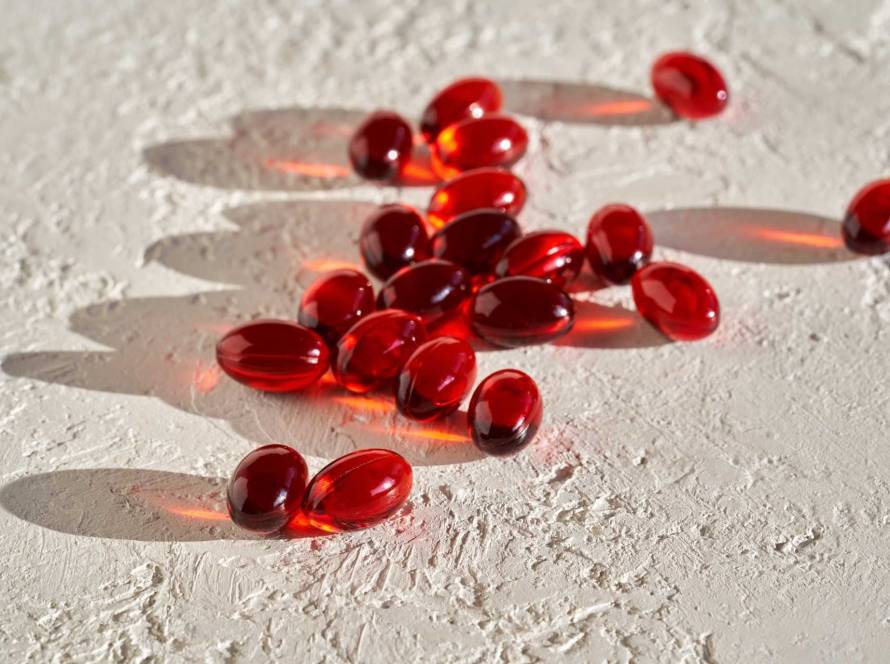Can I take vitamin C at night? Many people wonder about the best timing for supplements to maximize their health benefits. Research reveals that lower vitamin C levels in serum link directly to sleep problems, which suggests vitamin C could help improve sleep quality.
This piece will tap into the science behind nighttime vitamin C consumption. We’ll learn about its absorption, how well it works and its benefits for recovery while we sleep. We’ll tackle common questions about bedtime vitamin C use and share research-backed recommendations that will help us merge this vital nutrient into our evening routine for better long-term health.
Is it safe to take vitamin C at night?
People often debate whether they should take vitamin C supplements in the evening. Looking at scientific evidence shows us some valuable facts about taking vitamin C at night.
Why vitamin C doesn’t disrupt sleep
Many people worry needlessly about vitamin C and sleep quality. Research shows vitamin C might actually help us sleep better, not worse. Studies show people who take more vitamin C had a lower risk of sleep disturbances, including insomnia and sleep apnea. People who slept less usually had lower vitamin C levels, which suggests a link between getting enough vitamin C and sleeping well.
Our body uses vitamin C as an antioxidant to fight free radicals. This protection against cell damage could lower physical stress that might affect our sleep. This process helps our body recover better at night and leads to more restful sleep.
Water-soluble nature and excretion
Vitamin C’s safety at night comes in part from its water-soluble nature. Our body handles vitamin C differently from fat-soluble vitamins that build up in tissues. It dissolves in water, so our body takes what it needs and flushes out the extra through urine. This quick removal process keeps vitamin C from building up, whatever time we take it.
Vitamin C has a short half-life of about two hours in our bloodstream. This means the amount drops by half every two hours. Such quick processing means vitamin C won’t stay in our system long enough to mess with our sleep patterns.
Scientific consensus on nighttime safety
Vitamin C supplements are safe at the right doses, no matter when we take them. Taking too much (over 2,000 milligrams daily) might upset our stomach, but these issues come from the amount, not the timing.
Some people say vitamin C on an empty stomach before bed can cause mild stomach issues. A few might have vivid dreams or feel restless with high doses at night. Notwithstanding that, these reactions vary greatly between people and aren’t common problems.
Research backs vitamin C’s ability to help us sleep longer and reduce sleep-movement problems like restless legs syndrome. These benefits come from vitamin C’s antioxidant properties and how they affect our nervous system.
Does timing affect vitamin C absorption or effectiveness?
The way we time our vitamin C intake plays a big role in how well our bodies absorb and use this key nutrient. Learning these patterns helps us get the most benefit from supplements and food sources.
Absorption with or without food
Our body absorbs vitamin C differently when we take it with meals versus on an empty stomach. The water-soluble nature of vitamin C means our body can only absorb certain amounts at once. Many nutrition experts suggest we should take vitamin C with food to avoid stomach issues. Taking vitamin C supplements with meals gives us two benefits, it’s easier on our stomach and our body uses the nutrients better.
Vitamin C helps our body absorb iron better, so it works great with iron-rich plant foods like kale or spinach. This teamwork between nutrients gives us a great way to get maximum benefits through smart timing.
Morning vs. night: what studies show
Studies tell us it doesn’t matter much whether we take vitamin C in the morning or at night. Most Our blood levels of vitamin C peak about two hours after we take it, according to pharmacokinetic studies.
The vitamin C in citrus fruits takes longer to reach peak levels in our blood compared to synthetic versions. Yet it shows better overall absorption over time. This suggests that food-based vitamin C might work more slowly but our body could absorb it more completely.
Impact of divided doses on bioavailability
Our body absorbs vitamin C better when we split it into smaller doses throughout the day. Taking more than 200 mg at once might be wasteful as our body can’t absorb it all and flushes it out. A study looked at how much vitamin C showed up in urine after taking either one 1g dose or eight smaller 0.125g doses every 15 minutes. The split doses boosted absorption by 72%.
Our body also absorbs vitamin C 69% better when we take it with a high-fat meal instead of by itself. These findings show that spreading out our vitamin C intake through the day helps our body absorb it best.
Can vitamin C support nighttime recovery?
Vitamin C is a vital player in nighttime recovery that works through multiple body mechanisms. Beyond its well-known immune benefits, this essential nutrient helps repair cells while we sleep.
Role in collagen synthesis during sleep
Our body repairs itself most actively at night. Vitamin C works as an essential cofactor for enzymes that produce collagen. The vitamin C acts as a cofactor required for prolylhydroxylase and lysyloxidase, enzymes that stabilize collagen molecules and give them structural strength. Our body can’t form stable triple-helical collagen molecules without enough vitamin C because it produces collagen polypeptides that lack hydroxyproline. Vitamin C boosts collagen production by increasing the transcription of collagen types I and III and makes these transcripts last longer. This collagen-boosting activity becomes valuable at night when our skin naturally starts its repair phase.
Antioxidant activity and cellular repair
Vitamin C serves as a powerful antioxidant at night by neutralizing free radicals that build up from daytime exposure to environmental stressors. This vitamin directly neutralizes unstable molecules and helps restore vitamin E’s antioxidant properties. Protection against oxidative stress becomes crucial during sleep when cell repair speeds up. Vitamin C protects genetic material, maintains cellular membranes and helps produce energy needed for healing. Taking vitamin C at night can optimize these natural restorative functions.
Immune function and overnight defense
Our immune defense gets better with adequate vitamin C levels at night. This nutrient improves both innate and adaptive immunity in several ways. We see vitamin C encourage the production and function of white blood cells, especially lymphocytes and phagocytes that fight infection. On top of that, it strengthens mucosal barriers and helps maintain epithelial integrity, our first line of defense against pathogens. Research shows that individuals with pneumonia often have lower vitamin C levels and taking supplements can speed up recovery.
Synergy with magnesium and iron at night
Taking vitamin C in the evening creates helpful synergies with other nutrients. It improves the absorption of non-heme iron from plant-based foods, making nighttime perfect if we take iron supplements. Vitamin C and magnesium work well together, while vitamin C helps with collagen production and antioxidant protection, magnesium reduces anxiety and stress while helping muscles relax. This nutrient combination can improve sleep quality and overnight recovery, making evening supplementation ideal to optimize our nighttime restoration processes.
Who should or shouldn’t take vitamin C at night?
Vitamin C is safe if we have normal health, but our personal factors play a role in the best time to take it. We can determine if evening doses work well by understanding our specific needs.
People with sensitive stomachs
Our stomach might feel uncomfortable when we take vitamin C before bed on an empty stomach. This happens because vitamin C (ascorbic acid) contains acid that can irritate sensitive stomach linings. We can avoid this by taking it with our evening meal or choosing buffered forms with calcium, magnesium or sodium ascorbate. These options work just as well.
Those taking iron supplements
Taking vitamin C at night works great if we also take iron supplements. The ascorbic acid helps our body absorb non-heme iron better. This is a big deal as it means that people with iron deficiency can get maximum benefits. But this combo might give us extra energy and affect our sleep if we’re sensitive to it. Pay attention to how our body reacts to know if it helps or hurts our sleep quality.
People who urinate frequently at night
Vitamin C can make us urinate more often. We might want to take it in the morning if we already get up often to use the bathroom at night (nocturia). Another option is to take our vitamin C several hours before bed. This gives the diuretic effect time to wear off before we sleep.
Best practices for evening supplementation
Here’s how to take vitamin C at night:
- Begin with small doses (250-500mg) when you first try evening supplements;
- Look for time-released forms that your body absorbs slowly through the night;
- Eat vitamin C with foods rich in flavonoids like berries to help your body absorb it better;
- Watch how well you sleep and adjust your timing based on what works for you;
- Drink enough water during the day, but cut back a few hours before bed if nighttime bathroom trips worry you.
We’ll need to try different approaches within safe limits to see if taking vitamin C at night matches our health needs and sleep patterns.
Vitamin C can be a great addition to our evening routine if we plan it right. The secret isn’t about following strict timing rules. Understanding how our body responds and creating habits that match our health needs helps us discover the full potential of vitamin C. This approach optimizes its benefits for cell repair, immunity and our long-term health.



3 Comments